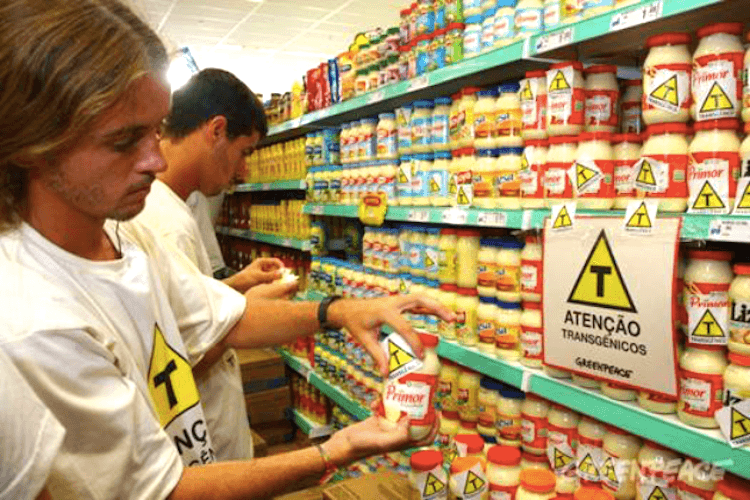
Nestle, Pepsi Fined for Concealing GMOs as Campbell Soup Announces Voluntary Label

As the food fight over genetically modified food (GMOs) rages on in the U.S., six major food manufacturers—including Nestle, PepsiCo and Mexican baking company Grupo Bimbo—have been slapped with fines by the Brazilian Ministry of Justice for concealing the presence of GMOs in their products.
According to teleSUR, the respective companies are facing fines ranging from $277,400 to just over $1 million, amounting to $3 million in total.
The ministry’s decision came after a 2010 investigation carried out by Brazil’s Consumer Protection Agency, Senacon, which detected GMOs in various food products sold by the companies in Brazilian markets.
Senacon accused the companies of violating Brazilian consumer rights, including the right to information, freedom of choice and the right for protection against abusive corporate practices, teleSUR reported.
Since 2003, Brazilian law has required food products containing more than 1 percent of GMOs to carry a warning label—a yellow triangle with the letter “T” inside, standing for “transgenic.”
Brazilian Institute of Consumer Defense researcher Ana Paula Bortoletto praised the ministry’s decision to enforce GMO labels.
“The decision confirms the Ministry of Justice’s commitment to require all products that use genetically modified ingredients to include this information on their labels,” she said.
Although the ministry’s decision spells victory for Brazilian consumers demanding food transparency, the country’s relationship with GMOs has been fraught with contention in recent decades.
GMOs in the South American country were initially banned after the Institute of Consumer Defense won a lawsuit in 1998. In the ensuing years, however, black market GMO seeds spread widely into the agricultural space and ultimately forced the nation into adopting the technology in 2003. As Reuters described back in a 2005 report:
So sought after is the cost-cutting technology on the black market that over a third of Brazil’s massive soybean crop—the main farm export worth 10 percent of total trade revenues—is seen planted with pirated GMO seeds. And nearly all the country’s cotton seed has been contaminated by GMOs.
“There is strong demand, industrially and scientifically, for biotechnology in Brazil,” Jorge Guimaraes, president of Brazil’s CTNBio biotechnology regulator, told Reuters.
In 2003, faced with cracking down on the entire No.3 soy producing state of Rio Grande do Sul and thousands of other producers in other states, the government of President Luiz Inacio Lula da Silva after taking office opted to push for legalization and regulation of GMOs.
GMOs are now rampant in the country—Brazil is currently the second largest grower of GMO crops in the world after the U.S. According to the Genetic Literacy Project, Brazil had 104 million acres of GMO crops in production in 2014, and “more than than 93 percent of the country’s soybean crop is GM and almost 90 percent of the corn crop. GM cotton, more recently introduced, makes up 65.1 percent.”
While producers of bioengineered seeds tout its resistance to certain pathogens over organic seeds, as EcoWatch reported in 2014, Brazilian farmers found that “Bt corn” no longer repelled the destructive caterpillars it was genetically modified to protect against. In turn, farmers were forced to apply extra coats of insecticides, racking up additional environmental and financial costs.

 233k
233k  41k
41k  Subscribe
Subscribe 

